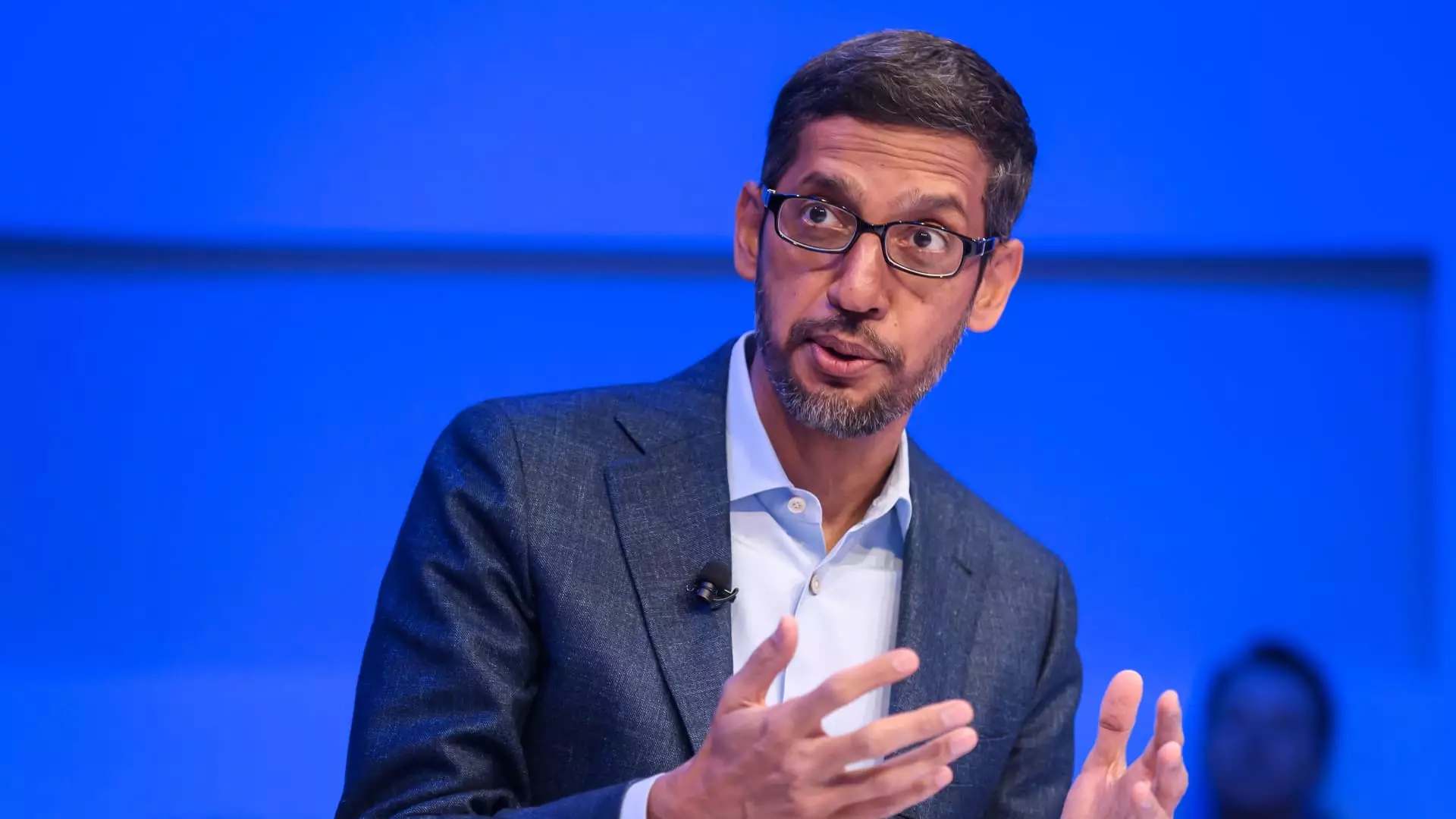As technology continues to evolve at an unprecedented pace, the landscape for tech giants is rapidly changing. For Google, the year 2025 heralds not only potential innovations but also immense challenges. At a recent strategy meeting, CEO Sundar Pichai underscored the critical nature of the upcoming year, stating that “the stakes are high.” Internalizing this urgency seems necessary, as the company faces intensifying competition, regulatory scrutiny, and the burgeoning field of artificial intelligence (AI).
Pichai’s comments resonate particularly well in a climate where many of Google’s traditional business areas are experiencing seismic shifts. The emergence of generative AI, spearheaded by startups like OpenAI, has brought both excitement and apprehension, reframing the competitive landscape for search engines and online services. Google has long dominated the search market, but now it finds itself navigated by new players that leverage cutting-edge technologies to deliver innovative solutions to users.
The regulatory environment surrounding Google has also intensified, posing additional hurdles for the company. In recent months, rulings targeting Google’s supposed monopoly in the search market and proposed divestments of segments like its Chrome browser have raised questions about the company’s future strategic direction. As scrutiny escalates globally, Pichai acknowledged that maintaining focus remains paramount. “We can’t afford to get distracted,” he remarked, highlighting the need to stay resilient in overcoming external pressures.
Internally, Google has faced challenges stemming from cultural shifts and the pressure to align multiple teams behind a cohesive vision. Following a year marked by workforce cuts, including the elimination of approximately 6% of its employees, the need for a cohesive corporate culture is more salient than ever. The founders’ scrappy beginnings serve as a reminder that creativity and resourcefulness can flourish amid constraints rather than in spite of them.
Central to Pichai’s strategy for the upcoming year is the deployment of AI technologies, particularly the Gemini app. This initiative reflects Google’s commitment to staying relevant in an evolving market where user demands and expectations are rapidly transforming. The company believes that AI can unlock significant potential, and it is investing heavily in this transition. With competitors like OpenAI capturing attention—and investment—rapidly, Google aims to establish Gemini as a market leader by focusing on user engagement and continual improvement.
Pichai has emphasized that while being first to market can be an advantage, execution is what ultimately leads to success. This underscores Google’s philosophy of prioritizing quality and user satisfaction as it seeks to maintain its historic market position against emerging contenders. The company seems intent on leveraging its substantial resources to enhance Gemini’s capabilities and user base, highlighting a determination to regain its momentum.
During the strategy meeting, Pichai engaged with employees about the company’s trajectory for AI products, fielding questions that revealed underlying apprehensions within the workforce. Concerns about competition, particularly AI models like ChatGPT, have prompted discussions around how Google plans to remain relevant. With internal leaders like Demis Hassabis voicing ambitious visions of a universal assistant capable of cross-domain functionality, Google’s strategy appears focused on both innovation and streamlining processes.
Moreover, the aggressive pricing strategies of competitors raise inquiries about Google’s pricing models for AI services, with Hassabis confirming that while there are no plans for extensive subscription fees, they remain open to examining user feedback regarding pricing fairness. Such transparency serves to bolster employee confidence in the organization’s direction while maintaining an agile framework for adaptation.
As Pichai concluded the meeting, he encouraged staff to embody a “scrappy” mindset, promoting the idea that resourcefulness is a key asset in overcoming the challenges that lie ahead. The emphasis on agility and creativity—hallmarks of Google’s early days—will be crucial as the company maneuvers through a month marked by pressures from various fronts.
In anticipation of 2025, Google will need to harness its historical commitment to innovation while remaining consistently focused on the user experience. The interplay of competition, regulatory scrutiny, and rapid technological change demands a proactive approach to strategy, allowing Google not only to navigate challenges but to thrive in a complex future. As AI technologies become further integrated into everyday life, how Google responds will be pivotal both for its own success and for the broader technological landscape.

